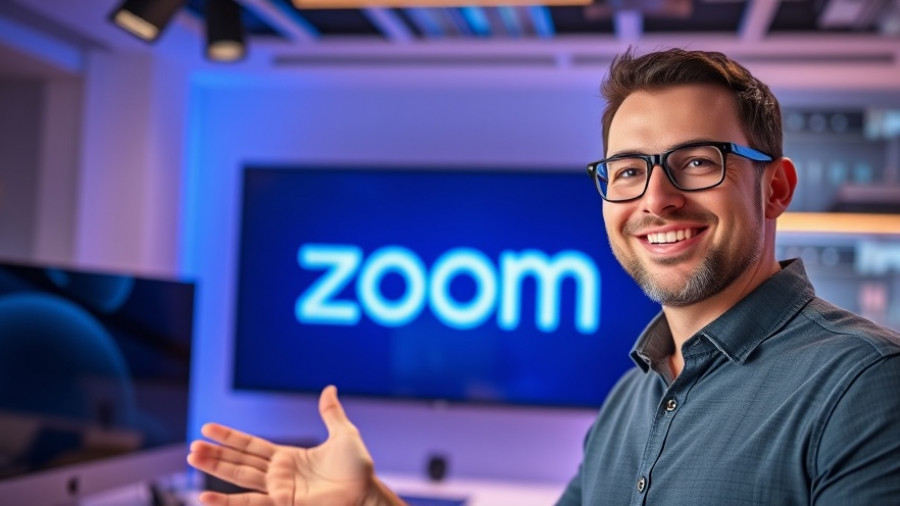
Revolutionizing Work: How AI is Shaping the Future of Our Workweek
As we dive deeper into the digital age, the conversations about artificial intelligence (AI) and its role in the workplace have gained momentum. Zoom CEO Eric Yuan recently made headlines at the TechCrunch Disrupt 2025 conference, suggesting that the future of work might not just become more efficient, but also drastically shorter. With AI's growing capabilities, Yuan predicts a potential shift towards a three- or four-day workweek as work becomes more streamlined through advanced technology.
The Promise of AI: Shortening Our Workweek?
Yuan emphasized the transformative power of AI in revolutionizing professional communication. His introduction of AI avatars, or “digital twins,” signifies a potential leap in how colleagues manage their tasks. Imagine business executives signing contracts not in long, drawn-out conferences, but through their digital counterparts working collaboratively simultaneously. This real-time efficiency could free up significant hours from our traditional workweek.
Embracing Flexibility: A Look at AI Work Tools
The integration of AI into workflows is not just about reducing time; it also enhances productivity. Yuan also spotlighted how AI may assist in tasks such as email management, effectively prioritizing urgent messages, and organizing workloads. Such innovations might redefine conventional job descriptions, shifting from mere time spent to the quality of output, aligning with current trends advocating for a shorter workweek.
Efficiencies Envisioned: What Research Shows
The argument for a condensed workweek has gained traction beyond tech circles. Research from Boston College indicates that moving to a four-day workweek can drastically enhance employee well-being without sacrificing productivity. A study showed that 67% of participants reported lower burnout levels, and more than a third noted improved mental health. These findings resonate with Yuan's sentiments, supporting the notion that a reduction in work hours can come hand-in-hand with a boost in productivity—something employers could leverage in the evolving workplace.
Understanding Resistance: The Myth of Reduced Output
Yet, the move towards a shorter workweek is not without skepticism. Many business leaders harbor fears that a four-day schedule could lead to decreased outputs or missed deadlines. However, experts like Joe O'Connor, former CEO of 4 Day Week Global, argue that productivity may not be merely about the hours worked, but rather the effectiveness of the tasks completed. Companies that adopt AI innovations could find themselves in a unique position to redefine how they view productivity and output.
Actionable Insights for Organizations
As organizations begin to explore these AI-driven efficiencies, there are several strategies to smoothly transition to shorter workweeks. Listening to employees and directly addressing their concerns about AI and workload can help alleviate fears. Providing training and resources about integrating AI tools will also foster a culture of innovation and adaptability. Ultimately, companies that harness AI's capabilities not only stand to benefit from increased productivity but can also cultivate a more engaged and satisfied workforce.
Looking Ahead: The Future of Work
In conclusion, while the idea of a three or four-day workweek may seem revolutionary, with visionaries like Eric Yuan leading the charge, it’s not as far-fetched as it once seemed. AI's integration into daily workflows heralds a new era of productivity, creativity, and, ultimately, a more fulfilling work-life balance.
 Add Row
Add Row  Add
Add 




Write A Comment